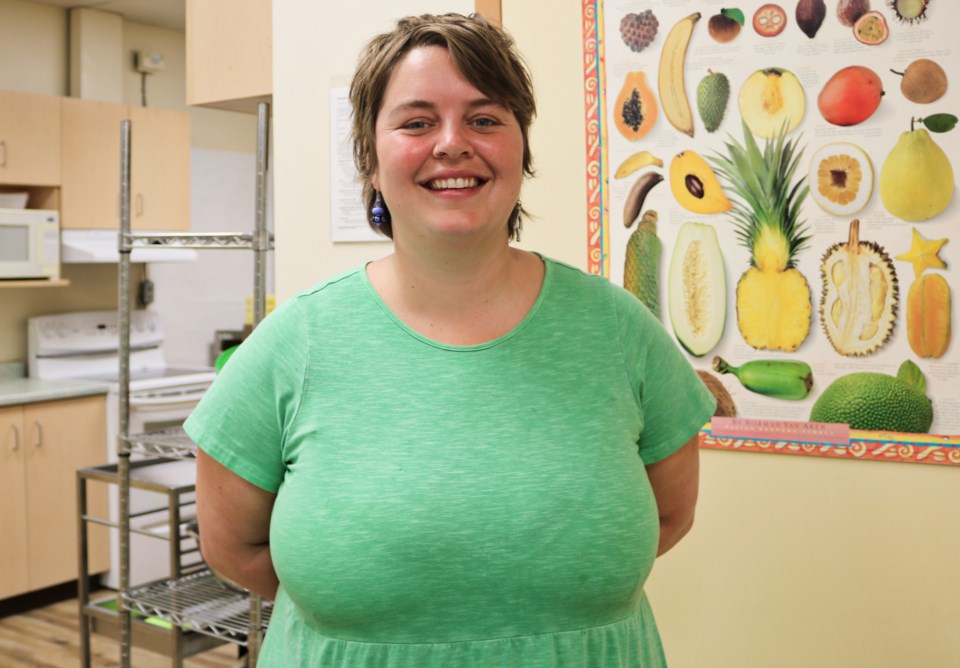A local food movement is trying a different method to fight food insecurity; prescriptions for fresh fruits and vegetables from doctors and healthcare providers.
The Fresh Food Prescription (FFRx) is a social prescribing program run by The SEED. It is currently being studied by researchers at the University of Guelph and the University of Victoria to see if fresh food prescriptions can help increase healthy food consumption and food security for at-risk individuals of food insecurity.
Through the program, 60 participants were given food vouchers which were valued at $10 each, and could be used on produce at Groceries at The SEED. Depending on the number of people within a household, participants received up to $50 worth of food vouchers per week.
These vouchers were redeemable at all Guelph Community Health Centre market locations and for online or call-in orders. The vouchers could be used at any point in the week. If a resident didn't use a voucher one week, or had money leftover on a previous voucher, the balance was then transferred over the next week. To learn more about the program, go to theseedguelph.ca.
Abby Richter, FFRx coordinator at The SEED, said Guelph has a disproportionate average of food insecure members compared to the rest of Canada.
“As a dietitian, we see people with medical conditions that are influenced sometimes by food, and we know people are very stressed because they don't have enough money for food, and that affects their health conditions, so it was an easy fit to think, 'If we have enough money to prescribe people food that can benefit our clients and our community members,' and that's kind of spurred it.
"I think we had private funders who were very excited in the idea."
Richter said the program started in September 2019 and was done in two phases. The first phase lasted for 12 weeks and the second phase ran for one year. While the second phase recently finished, Richter notes participants had good things to say about the program so far.
“Our results showed people felt they had more agency over what they ate, like they had more control and choice over the food that they ate, and that correlated into people feeling like they had more control over their health, and their self care,” said Richter. “They felt more connected to their communities and we did see an improvement in household food insecurity, which is important."
Rosalind Crocker is one of the participants in the FFRx program. As a senior resident who was diabetic prior to entering the program, Crocker said her doctor at the Guelph CHC referred her to the program. By having access to fresh fruits and vegetables through FFRx, and following the advice of a registered dietitian, Crocker lost 40 lbs. and is no longer diabetic.
"It absolutely changed me. The weight has gone down, the energy has gone up, my attitude improved," said Crocker. "I'm so grateful that my doctor referred me to it."
Living through the pandemic on a pension, Crocker said this program has helped reduce financial stress of buying produce.
"We can access fresh fruit and vegetables and not have to stress about the financial aspect of it," said Crocker, "Money is tight, certainly for seniors, money is tight. Everything's gone up, gas has gone up, food at the stores have gone up, we might have been able to eat the way we should be eating because of those restrictions. This program made it possible, and made it easy, made the food available. That's a benefit to everyone in the community."
Crocker said accessing the program online to order food or check the balance on your vouchers is easy. If a participant is having food delivered to their home, she adds participants are notified in advance when the food will arrive and ask where it can be dropped off.
"They've made it so easy for people to follow through and participate in this program, and I believe the reason why certainly, I found it successful, and certainly, I'm not the only person," said Crocker.
“People want the program to continue, they want access to different foods," Richter said about the response to FFRx. "Like right now, we’re just doing fruits and vegetables, and anecdotally, our patients want access to foods like dairy and protein.”
Richter mentions the program still has improvements to make, citing one participant had trouble accessing the program due to limited access to a computer or a phone during the pandemic.
“There still work to be done and I know there are still some people who are missing with our program, but that just motivates me, and I know our team is very motivated to continue this program in a way that more people can access," said Richter.
While the FFRx program is helping some vulnerable residents within the community, Richter said this is not a solution to food insecurity.
“We need higher incomes, and we need municipal, provincial and federal governments to provide income support for people, because with inflation, this program can only reach so many people," said Richter. “It’s helping right now in the community, and it’s really positive and it’s impacting our healthcare system, but we need a multi prong approach where there’s income support as well.”
She also notes the Guelph CHC has the resources and community relationships to make a program like this accessible to a lot of people, but they need funding to keep going.
“I think we have a really good process and program in place that is able to stand the test of time and reach more people, we just need to find the money.”



